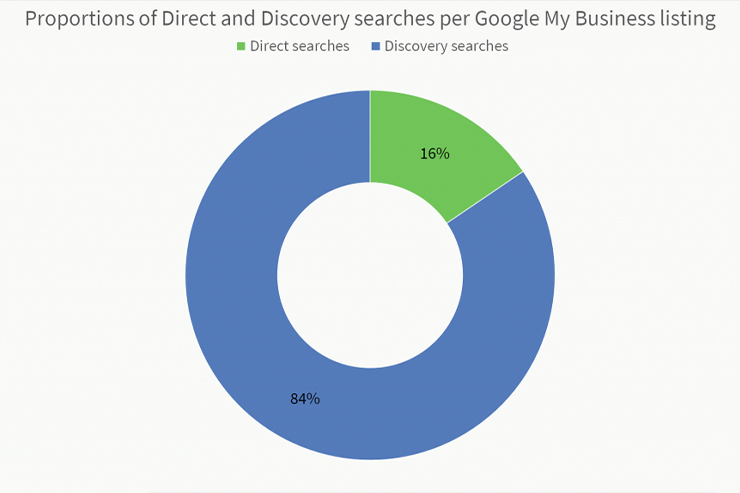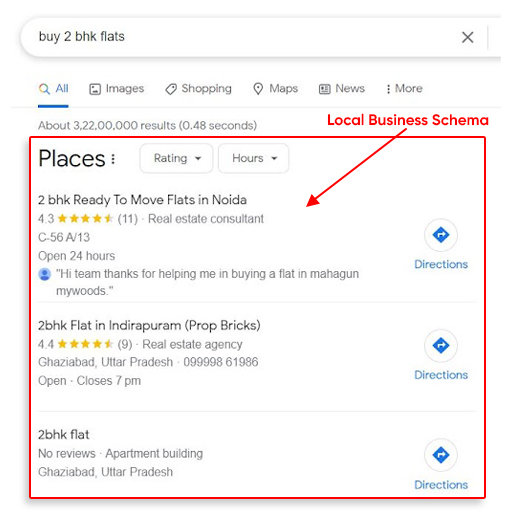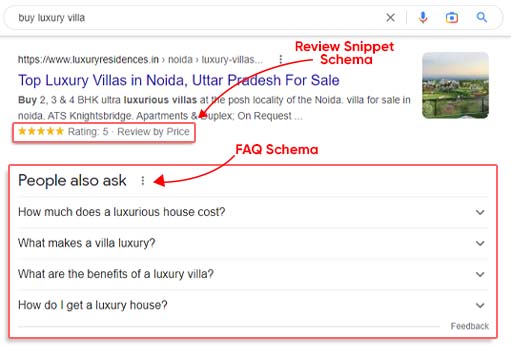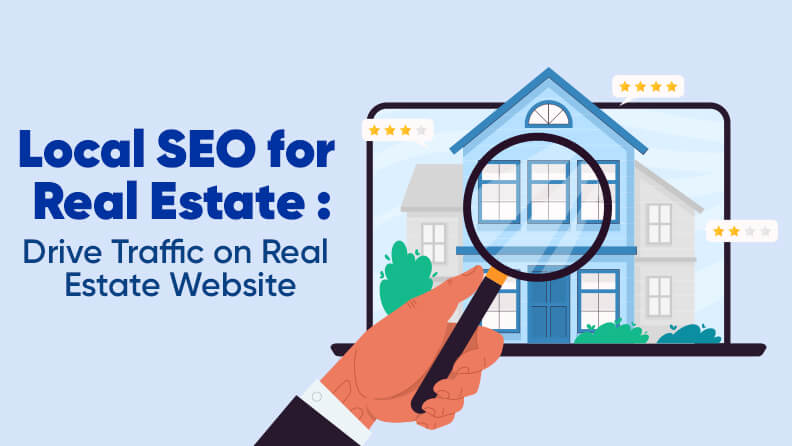Top 10 Local SEO Tips to Improve Your Real Estate Websites
Are you looking to boost your web stature? Then investing in Local SEO is the answer! And the stats are staggering.
The latest figures show that out of the whopping 3.5 billion searches done every day on Google, a shocking 1.6 billion of them exhibit local intent. That’s quite an impressive figure!
As online traffic plays an increasingly important role in the success of any business, mastering the art of Local SEO should become part of every real estate marketer’s arsenal.
Fortunately, there are numerous simple and effective Local SEO tactics that can help improve your real estate search engine visibility, trusted web presence, and lead generation performance.
In this article, we’ll discuss the top 10 Local SEO tips to help you achieve better real estate website results. From optimizing your local listings with accurate and detailed information to taking advantage of local search engine optimization tactics, you’ll get the strategies you need to maximize your real estate success.
So, let’s dive in and explore the top Local SEO tips!
Top 10 Local SEO Tips to Optimize Your Real Estate Website for Success
1. Start With an SEO Audit

SEO is the process of optimizing a website to increase traffic from search engines. It involves creating and implementing a plan to improve a website’s ranking in search engine results pages (SERPs).
There are many factors that can affect how well your website ranks, so it’s important to have an SEO audit done to understand where you need improvement.
With tools like Google Analytics, the Google Search Console, PageSpeed Insights, and Mobile-Friendly Test tools available, it’s critical to identify where attention is needed and address any issues on your real estate site.
Putting effort into the five main areas -site structure, page structure, content, links, and usability – can significantly improve your organic traffic. Take the time to assess your:
- XML sitemaps
- Robots.txt
- Redirects
- Titles, meta descriptions
- Heading tags, alt tags
- URLs, page, and link structures
- Content structure
- Keywords, duplicates
- Canonicals
- Broken links
- Mobile-friendliness
- Site speed, plus other accessibility factors.
When these areas are audited and improved, your site will see an advantageous increase in organic traffic!
2. Optimize Your Website for Search Engines
Once you have a good understanding of your target market and the keywords they are using, it’s time to optimize your website for search engines. There are several ways to optimize your website for search engines. Here are some of the key strategies:

- Conduct Keyword Research: Identify the keywords and phrases that your target audience uses when searching for products or services like yours.
- Create Quality Content: Quality content is essential because it can help you achieve several important goals, such as building trust, Attracting and retaining customers, Improving search engine rankings etc.
- Improve Website Speed: Website speed is a ranking factor for search engines. Make sure your website loads quickly by optimizing images, using caching, and minimizing code. Make sure all of your pages load quickly, so people can find what they’re looking for easily.
- Optimize Your Website Content: Create high-quality, informative, and engaging content that incorporates your target keywords. Use keywords throughout your site in the right places (title tags, meta descriptions, header tags (H1, H2, H3) to organize your content and make it easy for search engines to understand.
- Better ROI: SEO can be a cost-effective way to drive targeted traffic to your website. By optimizing your website for search engines, you can improve your return on investment (ROI) and get more value out of your marketing efforts.
3. Make Sure Your Website is Accessible
Design your website with accessibility in mind. Make sure all content is easily accessible, that all images are alt-texted and labeled, and that your website’s fonts are eligible for those with vision disabilities.
In addition, ensure that the overall design of your website is easy to navigate and use. Moreover, real estate agents, in particular, need to ensure that their websites are ADA-compliant to avoid being potential targets of lawsuits. To this end, there are a few guidelines to follow:
- Adding a link to any media players or PDF documents so that the necessary software can be downloaded.
- Notifying users of any invalid input given, such as missing email addresses, when required.
- Ensuring the website’s layout isn’t solely reliant on color.
- Naming all buttons and links clearly.
- Implementing a “skip navigation” feature to make the content easy to access.
- Using text captions for any video content.
- Providing transcripts or descriptions for any audio/video content.
- Any audio should be able to be stopped without delay.
- Accurately describing page titles to prevent misleading users.
- Alerting users to any time limits for specific tasks.
- Including alt text for all images for clarity for screen readers.
Google Images ranks second in the world as an online search engine, holding a significant 20.45% of the entire online search market and far outpacing YouTube, Bing, and other search engines combined. This unfathomable reach is unparalleled in its highest perplexity and burstiness.

Furthermore, the website is optimized for accessibility:
- No empty links
- No outdated <b> or <i> tags
- Headings are in a logical order
- Users can navigate using their keyboard and by the language code in the header
- Forms have both labels and legends readable by screen readers
- Any keyboard focus should not lock on specific elements
- Consistently following W3C HTML validation standards
4. Optimize for Mobile Devices
Did you know that a whopping 63% of Google’s US organic search traffic comes from mobile devices – proof that smartphones and tablets are as popular as ever?
 This groundbreaking statistic highlights the importance of optimizing websites for mobile use to ensure your users get the best experience possible.
This groundbreaking statistic highlights the importance of optimizing websites for mobile use to ensure your users get the best experience possible.
Fortunately, there are many ways to optimize your real estate websites for mobile devices. You can make your website easier to use on a mobile device by designing it for a small screen, including using simplified directions and icons and ensuring all content is easily accessible.
You can also optimize your website for speed and battery life on mobile devices. Use optimized images, fonts, and scripts to minimize load times and conserve power. Yet, consider adding features designed specifically for mobile devices, such as live chat or the ability to view properties in 3D.
Moreover, test your current website’s mobile-friendliness using Mobile-Friendly Test Tool and utilize an emulator to observe how your content appears on mobile devices.
5. Add Your Site to Google My Business and Other Relevant Directories
Discoveries account for 84% of searches, while direct searches account for 16%.

Adding your site to Google My Business and other relevant directories can help promote your real estate business online.
You can also add your site to Yelp, Zillow, and other directories using their respective websites. Each directory has different requirements (such as an active website or a certain number of reviews), so it’s best to check with each provider before adding your site.
6. Get Social
If you want to market your real estate business, you need to use social media! Social media platforms like Twitter, Instagram, Twitter, Pinterest, and Facebook are great ways to connect with potential clients and build relationships.
You can also use these platforms to share information about your properties, sell homes, and get feedback from potential customers.
7. Publish Useful Content on Your Blog
Creating a blog on your website provides you with extra opportunities to target your potential clients. Your site’s content should be valuable to potential buyers and tenants. Make sure to provide helpful information about neighborhoods, local schools, crime rates, and other key amenities. Include images when possible to illustrate your points.
In addition to optimizing your site for search engines, it’s important to link back to other websites that may be related to what you’re selling or writing about. Doing so will help boost your site’s ranking within search engine results pages (SERPs).
8. Create Video Content

When creating video content, be sure to target your audience and create content that is relevant to their interests. This means researching what topics are popular among potential home buyers and sellers in your area and presenting information in a way that is engaging and entertaining.
Moreover, the video doesn’t have to be the only type of content on your website. Use videos as an additional tool to supplement written content on your site. When done correctly, videos can help educate potential customers about the real estate market in your area.
Always update your videos regularly! Not only will this keep them interesting for viewers, but it also shows that you’re paying attention to what’s happening in the real estate market and making changes as needed.
9. Use Structured Data Markup to Improve Local SEO
Schema markup is a type of structured data that allows search engines to better understand the content of a webpage. By including schema markup on your website, you can provide additional information about your content.
Let’s see schema markup for local SEO listings-
Schema markup can be especially useful for local SEO listings, as it can provide search engines with additional information about your business, such as your address, phone number, and business hours. This can help your business to appear more prominently in local search results, making it easier for potential customers to find you.
Here is an example of local SEO for real estate business:

Let’s see another example of schema markup which is review schema and FAQ schema:
Review Schema for Real Estate Business:
If you run a real estate business and want to use schema markup to display reviews and ratings in search results then this markup can be used to display reviews and ratings of your business in search results, which can help to boost your visibility and credibility.
FAQ Schema Markup:
FAQ schema is a type of schema markup that can be added to a web page to provide additional structured data to search engines about the frequently asked questions and their answers on the page. The main purpose of adding FAQ schema to a web page is to enhance the appearance of search results and help search engines better understand the content on the page.

Add schema markup to any page that has information about properties or listings (for example, listing details or photos). This will help Google understand the data on those pages so that it can better display it in its search results.
10. Try to Earn Featured Snippets
Featured snippets can be a powerful way to attract leads and drive traffic to your real estate websites. What are featured snippets, and how do you get them?
In short, featured snippets are a type of content that Google gives extra emphasis to in its search results pages. When you write or import content that would be eligible for inclusion in a featured snippet, Google will identify it and display it as such on your site’s search results pages.
To be included in a featured snippet, your content must:
- Be distinctly relevant to the topic of real estate
- Be well-written and informative
- Contain at least 1,250 words (though this number may vary based on the length of the snippet)
Wrap Up!
These 10 Local SEO Tips have provided you with the knowledge and tools you need to start maximizing the potential of your Real Estate Website. By tailoring and optimizing your website to fit the local market, you can ensure that your website will have the best possible exposure and visibility to potential customers.
Additionally, with a smart localization strategy and adherence to best practices in local SEO, you can ensure that your Real Estate Website will reach its full potential and strengthen its position in the industry. Moreover, for more help, contact E2WebServices for all your SEO needs.
Shyam Kumar is an accomplished author with years of experience in crafting high-quality, engaging content that drives traffic and boosts rankings. He has a keen understanding of search engine algorithms and is skilled at creating content that not only ranks well but also resonates with readers. His dedication and expertise make him a valuable asset to any SEO team.


